Fischer Random Chess scene 23 years ago
Chess has multitude of variants. While most of them are fun - Bughouse being one of the most popular among them, among the serious variants - Fischer Random and Basque chess are the only two variants which gained a lot of traction. Fischer Random or Chess 960 is undoubtedly the most popular and widely accepted chess variants which is played at the top level too. Last year FIDE crowned the first ever Fischer Random World Champion in the form of Wesley So. Couple of days ago we hosted Buddhibal Kreeda Trust Online Blitz Open which was won by IM Mitrabha Guha, but what was the Fischer Random scene over two decades ago? Let's take a look at an article which was published in The Telegraph - an English daily newspaper 23 years ago. Photo: Icelandic Chess Federation
Fischer's gameplan
Twenty five years ago, in 1972, Bobby Fischer took the world by a storm. Reason: His title match against Boris Spassky-then called the match of the century. Chess, which till then had been relegated to a small column on the sports pages, suddenly found itself making lead headlines. The game began vying for equal importance with political and social events. Upstart, braggart, capricious, conceited, paranoid - all these epithets were thrust on Fischer. Despite his tantrums and outrageous demands, he had given the game a star billing, a status - something none of the gentlemen grandmasters could deliver.
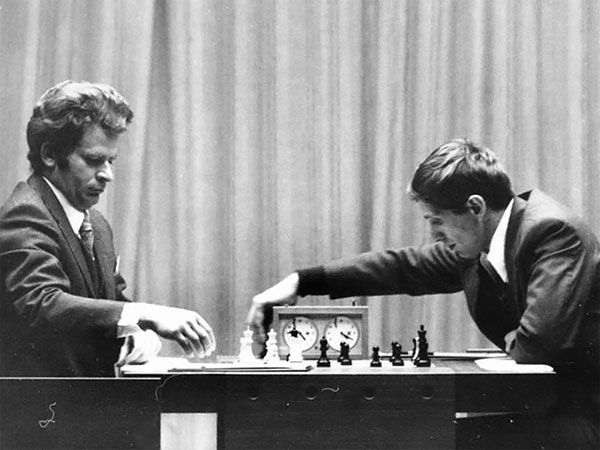
After winning the world title, Fischer went into hibernation refusing to defend his crown , against the new challenger Anatoly Karpov in 1975, except on his own terms. Now Fischer is back in the news in his own inimitable way - promoting a new brand of the game called Fischer Random Chess. The rules of the game are basically the same as in traditional chess, except for the fact that each game begins from a different starting position randomly chosen by the Fischer Random Chess computerised shuffler.
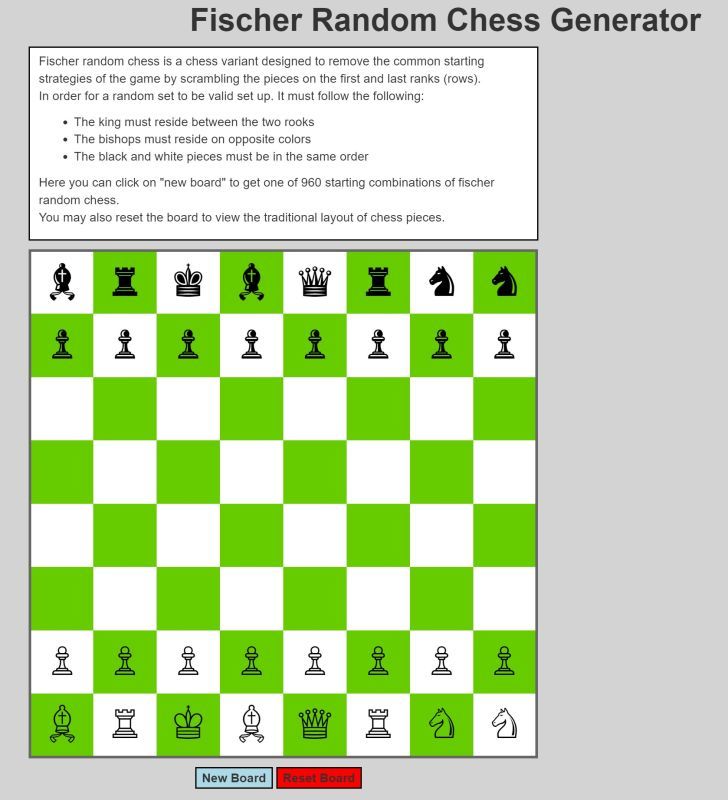
In Fischer Random Chess, the pawns are arranged on the second rank, as in traditional chess. If the White King is chosen to be put on a square (say c1) then black King will stay on the corresponding square (c8). Similarly, all other pieces are placed opposite each other.
International Arbiter, Stewart Reuben of England - who was in the city for the Commonwealth Open Chess Championship, however, felt that the concept of random chess is not new. "It has been there for ages. It is only because Fischer has decided to promote this form of chess that it has made headlines," he said.
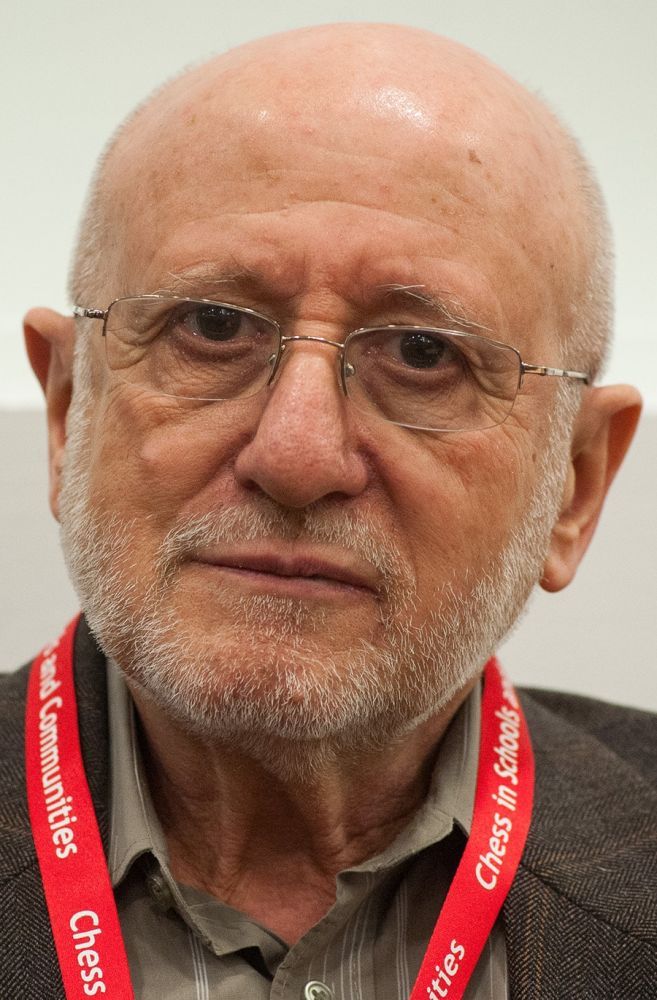
The only difference between Fischer Random and complete Random is that in the former, the pieces are placed opposite each other. In Fischer Random, there are 960 starting positions while in complete Random there are 1440.
Creativity and talent play a major role in this form of game. The theory in the traditional game has advanced so much that home analysis and memorisation can often decide the outcome of the game. A lot of players, particularly 'wonder children', memorise the openings from Chess Informant, a handbook on the games played by the top grandmasters.
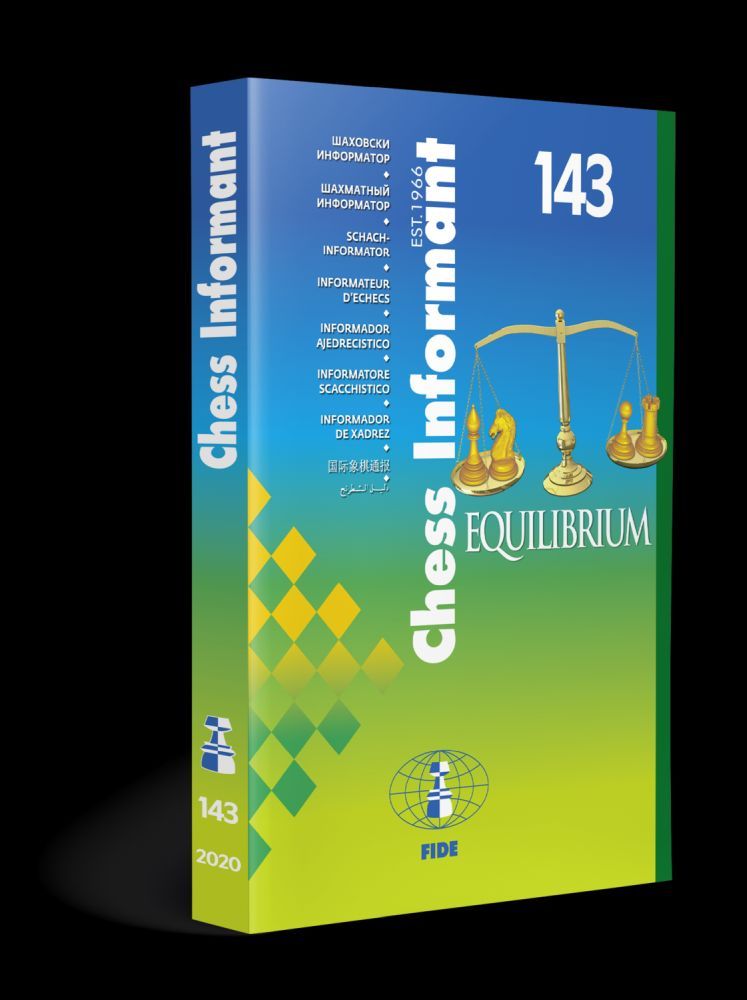
In fact, former world champion Tigran Petrosian even went to the extent of calling them Informant's children. Chess coach, Grandmaster Eduard Gufeld went one step further and called them Informant's grandchildren (their parents being modern computers).
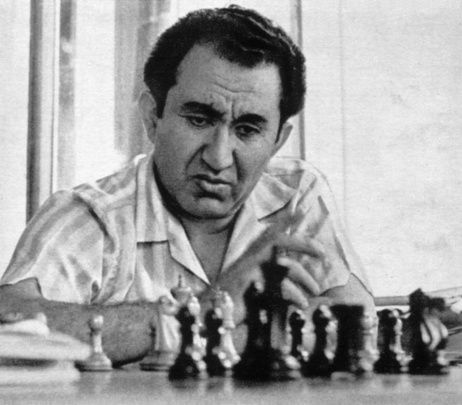
With Deep Blue scoring a victory over the world champion Garry Kasparov, there have been doubts about the future of the game. Now that computers are making inroads into conventional games, the creative element of the game will soon be lost.
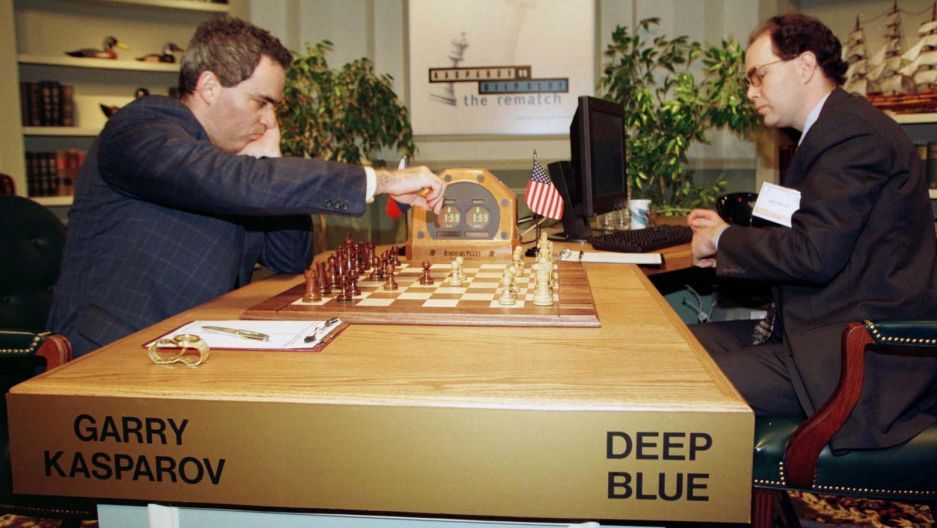
In Fischer Random, computers will be at a considerable disadvantage as most of the chess database would be rendered useless. According to Fischer, his new form of the game will eliminate all homestudy and analysis which is there in traditional chess.

No prearranged games will be possible in Fischer Random, he asserts. He even accused Kasparov and Karpov of prearranging their world championship matches.
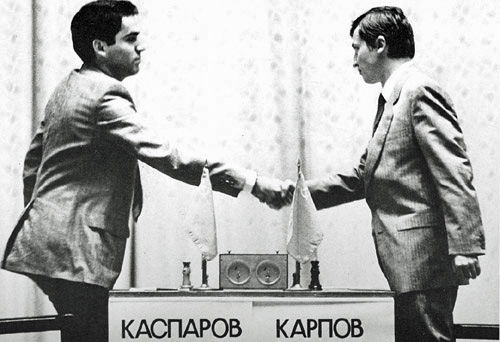
Is Fischer Random likely to take off? "Only if sponsors come forward will people take to Fischer Random," says Reuben. "When I introduced the accelerated finish, way back in 1973, people were reluctant to accept it, but now it is a part of the FIDE rules. Fischer Random will undoubtedly encourage creative play, but at the same time our enormous chess literature will be lost." The establishment looks at the new variation with suspicion and it is unlikely that it will be recognised by FIDE.
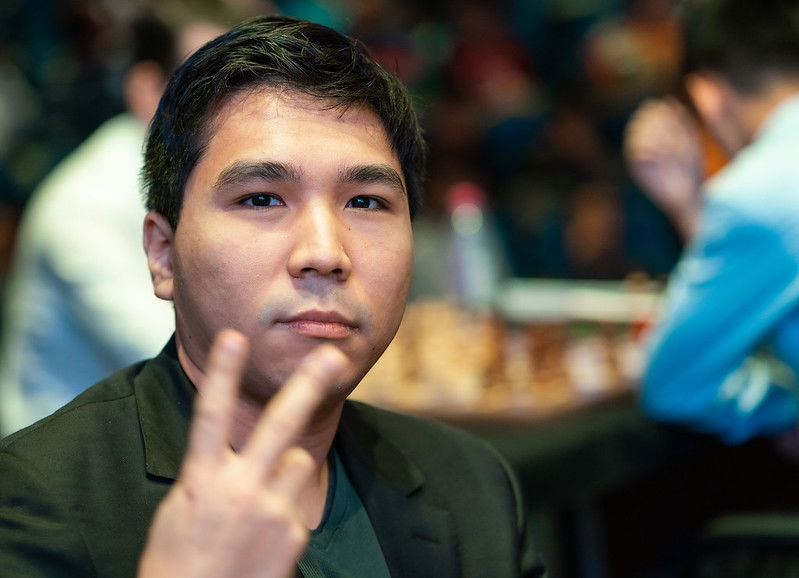
Only time will tell whether Fischer Random will gain a foothold in the chess world or not. At the moment, it seems unlikely. As an expert put it, "Chess is too noble a game to be left to the players."
Editor's note: 22 years after the article was originally published, the author of this article - Bipin Shenoy met the first Official Fischer Random World Champion Wesley So in Kolkata.
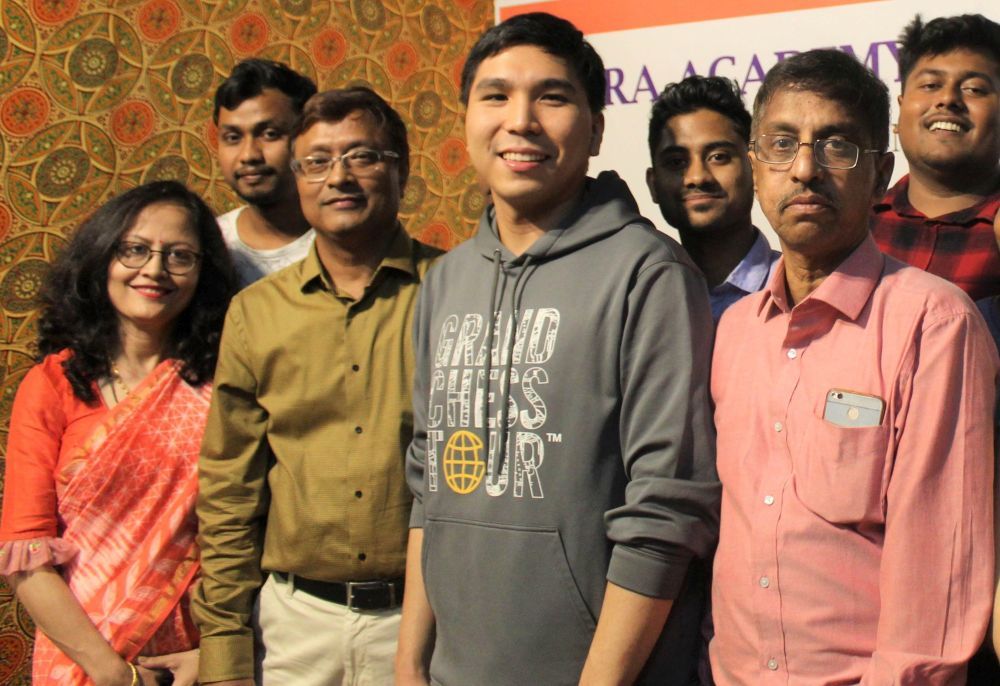
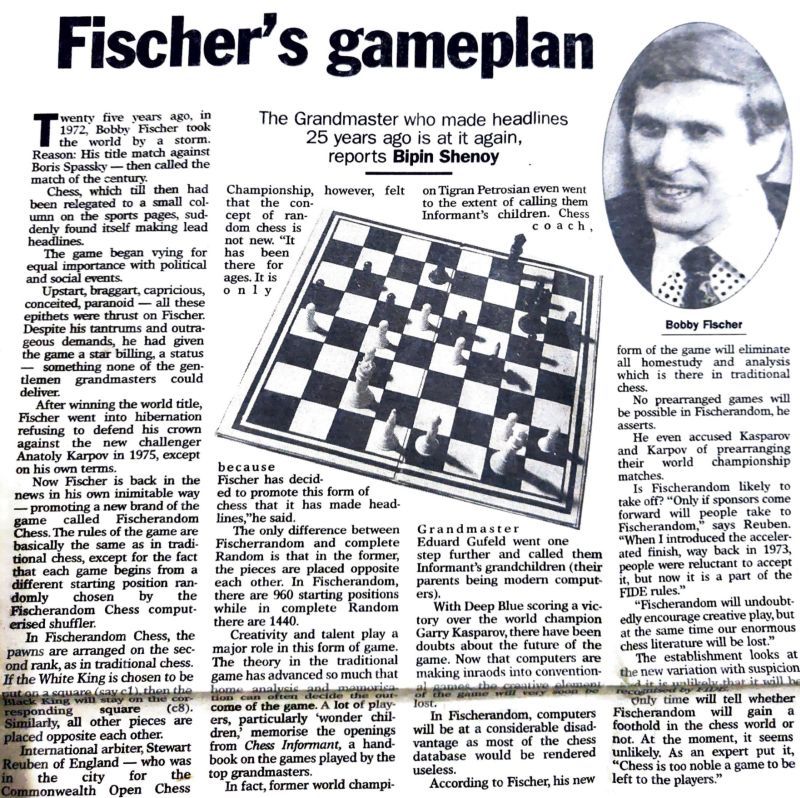
About the Author
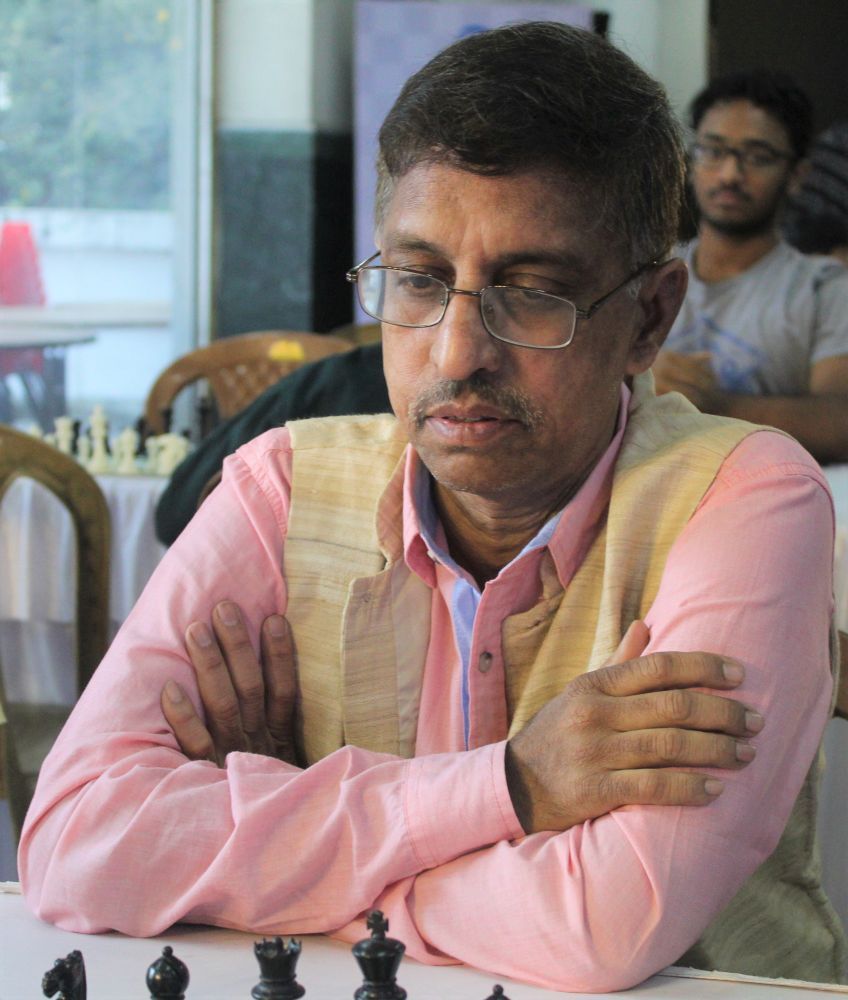
Bipin Shenoy, a prolific chess coach, started the Chess in Schools program in Kolkata. He taught Mary Ann Gomes, Neelotpal Das, Sandipan Chanda and Surya Sekhar Ganguly in their younger days. He is well versed in four languages - English, Hindi, Marathi and Bangla. He has also been a chess journalist for The Telegraph, The Times of India and Amritabazar Patrika. He interviewed Smyslov, Gufeld, Korchnoi, Anand and many more legends of the game. He was the only non-GM regional editor of India of Kasparov Chess Club.
The article was edited by Shahid Ahmed

